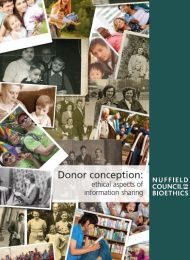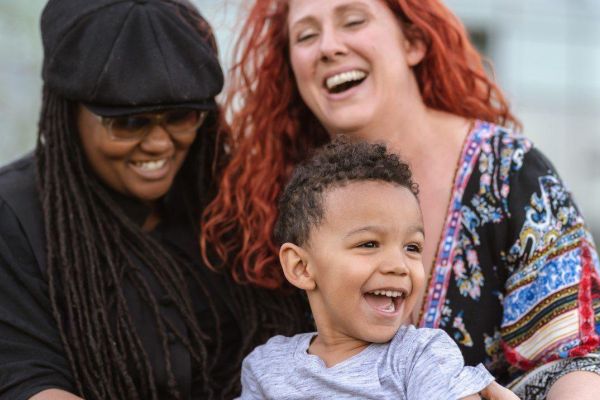Donor conception: ethical aspects of information sharing
Report
Published 17/04/2013

Evidence about the views and experiences of donor-conceived people, parents, and donors with respect to the sharing of information is patchy, but some tentative conclusions can be drawn. Inevitably though, some things cannot be known – in particular the views of those who do not know that they are donor-conceived.
Disclosure in donor conception
Until relatively recently, parents were advised not to tell their children that they were donor-conceived, and most parents followed this advice. However, the number of parents who do share this information with their children is now increasing. The latest figures suggest that over three quarters of parents intend to tell their child about how they were conceived, although not all actually go on to do so. Solo mothers and same sex couples are more likely to tell their children about the way they were conceived than heterosexual couples.
Both ‘disclosing’ and ‘non-disclosing’ families seem to function well up to early adolescence. Not much is known about families with older children.
Children who are told that they are donor-conceived when they are very young appear to absorb this information without difficulty. However, some adults who found out later in life that they were conceived through sperm donation have reacted negatively. It is not known how often people discover in unplanned circumstances that they were donor-conceived.
Parents who do tell their children about the way that they were conceived rarely appear to regret this decision. Most non-disclosing parents also appear not to regret their decision, although some non-disclosing parents have described finding ‘secrecy’ in the family to be a burden, and some wish that they had disclosed when their child was younger.
The evidence points to the conclusion that it will usually be better for children to be told, by their parents and at an early age, that they are donor-conceived. However, every family is different and there can be no hard and fast rules.
Access to information
Some donor-conceived people are interested in knowing more about their donor. Their reasons include:
- finding out what kind of person the donor was, and why they chose to donate
- finding out whether they look like their donor, or have characteristics in common
- obtaining medical or family history information about their donor
Information about the donor may help some donor-conceived people fit their donor into their existing life story. The evidence in this area is currently limited to those conceived through sperm donation – little is yet known about the experiences of adolescents or adults conceived through egg or embryo donation.
Some donor-conceived people (and also some parents of younger children) are very interested in contacting both their donor and any donor-conceived siblings. Most people who search for their donor do not wish to form a ‘parental’ relationship with them. However, some do wish to form a family-like relationship with their donor-conceived siblings. Experiences of contact between donor-conceived people, donors, and donor-conceived siblings are generally reported to be positive, although not much is yet known about how such contact develops over time.
When the law changed in 2005, so that in the future donor-conceived adults would be able to find out the identity of their donor, there were concerns that this would prevent people from offering to be donors. However, clinics that actively recruit donors do now appear to be successful in finding a sufficient number of donors.

Share